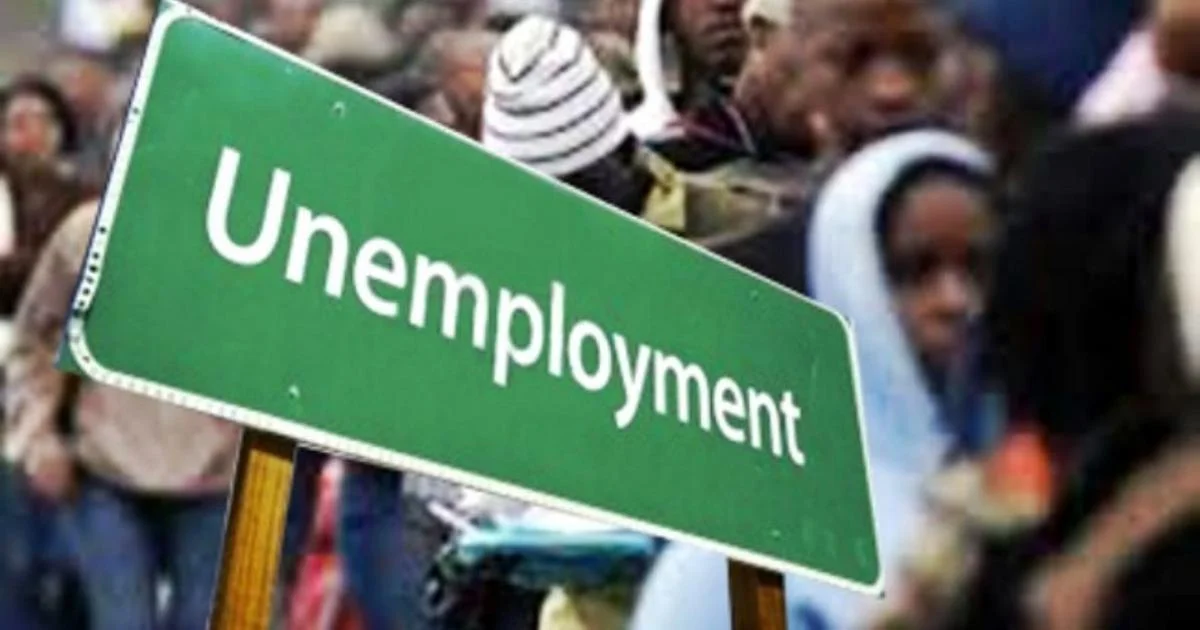By Adekke Chukwuka

The Federal Government aims to decrease poverty rate to 0.6% and unemployment rate to 6.3% by 2030 and 2050, as stated by the Minister of Budget and Economic Planning, Sen. Atiku Bagudu, during a news briefing for the 29th Nigerian Economic Summit (#NES29) in Abuja.
The summit’s theme is “Pathways to Sustainable Economic Transformation and Inclusion” and is scheduled for October 23 to October 24 at the Transcorp Hilton, Abuja.
The Minister, Sen. Atiku Bagudu, explained that the chosen theme aims to discuss economic transformation with inclusivity. The discussions will focus on stimulating economic growth, mobilizing finance, human capital development, national cohesion, and reforming institutions.
These sub-themes align with the National Development Plan (NDP) 2021–2025, the Nigeria Agenda 2050, and the Renewed Hope Agenda.
The Nigeria Agenda 2050 aims to raise per capita GDP to $6,000 by 2030 and $33,000 by 2050. The plan targets reducing poverty to 0.6% and unemployment to 6.3%. Implementation will occur through five-year medium-term national development plans and annual budgets.
The minister highlighted that the Renewed Hope Agenda and the government’s eight priority areas align with the goals of the Nigeria Agenda 2050 and the NDP 2021-2025, focusing on double-digit growth and inclusive development.
The ministry is conducting a mid-term review of the NDP 2021-2025, aiming to incorporate the current government’s agenda. Stakeholder input from the summit will be welcomed for effective integration into the plan.
The success of the summit relies on active participation from critical stakeholders, including federal and sub-national governments, private sector, civil society organizations, the media, and development partners.
The Minister appreciated contributions from corporate organizations and government institutions. The Chairman of NESG emphasized the need for inclusive industrialization to address social issues, reduce poverty, and tackle challenges like low productivity, unemployment, and income inequality in the country.
Chairman Olaniyi Yusuf highlighted the challenge of translating economic growth into improved living standards for all citizens in Nigeria. Despite growth, the country faces rising unemployment, income disparity, and multidimensional poverty. Approximately 62.9% of the population, equivalent to 133 million people, live in multidimensional poverty.
Yusuf emphasized the potential of the youthful population for national development through entrepreneurship and innovation. He urged leveraging technology and innovation to create jobs and foster economic progress.
The NESG aims to enhance entrepreneurship, skills, and innovation, emphasizing sub-national and local governments’ role in economic growth.
The summit’s goal is to create a more inclusive, sustainable, and equitable economy by fostering collaboration and promoting good governance at all government levels.
The summit is organized annually by the Federal Ministry of Budget and Economic Planning and the Nigerian Economic Summit Group (NESG).
Vodina Sam
Related posts
Reviews
Follow Our Activities On Facebook
5 hours ago
5 hours ago
7 hours ago
9 hours ago
12 hours ago
SUBSCRIBE
[mc4wp_form id=”2012″]
Top Reads!
#BigBrotherNaija “Level Up” Week 6
Though last Sunday Sunday was meant to be a “no-eviction” day, it came as a shocker when fake housemate, Modella…
Dating in 2022; Situationships Are Not For The Fainthearted
Situationships are defined as that space between a defined relationship and something other than a friendship. It is a romantic…
20 Questions With Dinta Media’s Visual Storyteller, Chimeremogo Nwoke
Dinta Media is not really just a media production brand but we like to see ourselves as a hub for…
How Are Nigeria’s Small Businesses Coping?
The current rising rate of inflation and other burdens against the Nigerian economy speaks to the realities of the times.
Thrifting Is All The Rave Now, Here’s Why
By Amy Adindu The affordable clothing movement has gained global attention and acceptance as we’re all trying to look like…
#BigBrotherNaija “Level Up” Week 2
Week 2 of the highly watched Nigerian TV show kicked off with an early plot twist. On Sunday, Big Brother…
#BlueTunes: Burna Boy, Omah Lay Top Album Picks For July
July was a promising month for music lovers; from Lizzo’s album titled Special and Imagine Dragons’ Mercury, (Acts 1 &…
#BlueTunes Album Picks For June
Gbagada Express – Boj Bolaji Odojukan, popularly known as BOJ, was raised both in England and Nigeria. He shot to…
“A Creative’s Dream” with Jeff Chinonso
On the 26th of June 2022, Jeff Chinonso hosted his first solo art exhibition. The Augmented Reality exhibition themed “A…
Nigerian API-based company Thepeer raises $2.1 million
Tech infrastructure startup Thepeer has raised a $2.1 million seed round according to a report from TechCabal. Thepeer, a Nigerian…
Dika Ofoma, Ugochukwu Onuoha take on grief in Debut Film “The Way Things Happen”
The twenty-minute film focuses on the loss of a loved one, and how grief changes a person.
Nigerian Startups might just be Crippled by a Recently Leaked bill
Over the years there has been talks of amendment on the 2007 Act of the National Information & Technology Agency (NITDA).
Why We Love Kelechi Amadi Obi
The definition of talent is Kelechi Amadi’s iconic story. Imagine a person who studies law in school, gets called to Bar, and leaves it all for something different and unrelated…Painting!

















